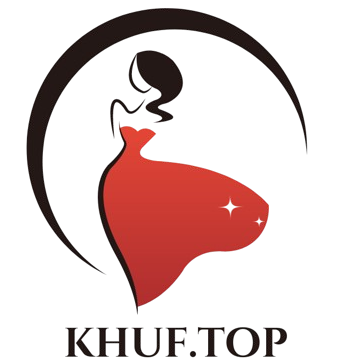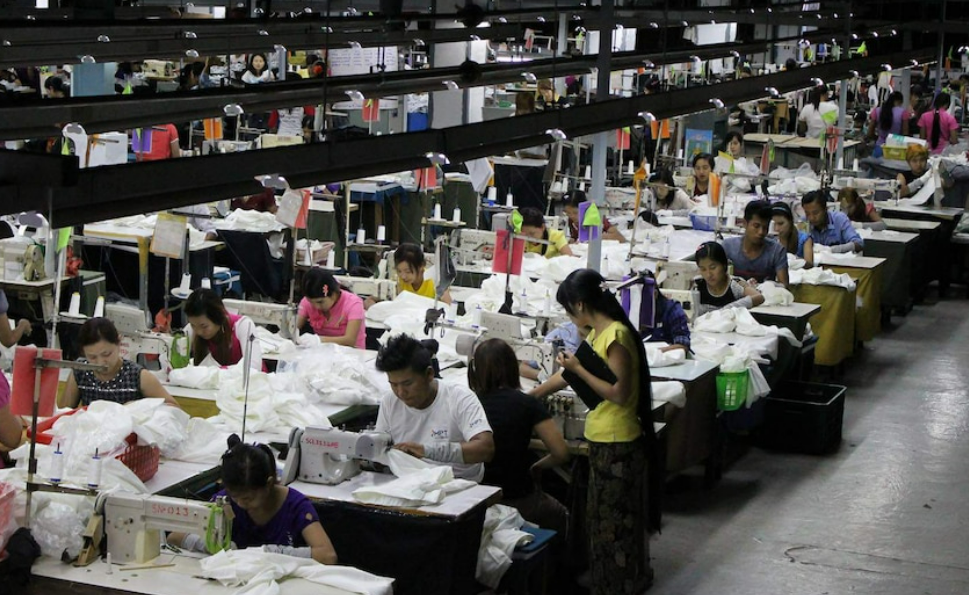When Ma Ei first started work in a garment factory, she felt relieved she didn’t have to work in the sun.
“It’s good to work under a roof with fans,” she told the ABC.
The 32-year-old Burmese woman from the isolated rice-growing Irrawaddy region in Myanmar’s south faced scant job opportunities in her hometown.
She migrated to the country’s biggest city Yangon to find work in a factory, sewing garments for H&M alongside 2,000 other workers.
But when she joined a union and reported that she was working overtime without pay, she was fired by the factory management along with other union members.

It was only after the issue was escalated to the factory’s Western client, H&M, that she and the other workers got their jobs back.
Now, three years after Myanmar’s military coup on February 1, 2021, many big fashion brands are pulling out of the country — leaving Ma Ei and workers like her in an even more precarious situation.
Among those leaving are many that are popular with Australian shoppers like H&M, Zara and Uniqlo.
Ma Ei said her factory had changed hands from Japanese ownership to Chinese, and when workers began making garments including casual wear for German sports brand Jako, conditions started to deteriorate.
When they could not meet the increased production targets, Ma Ei said they were made to work compulsory overtime and supervisors “locked the doors of the factory and made us keep working”.
Jako didn’t respond to a request for comment and late last year announced it would stop sourcing from Myanmar.
Ma Ei, who earns 5,800 Myanmar kyat ($4.22) per day, said workers’ pay was now docked when they took sick days.
“We have to work overtime without pay to meet the high targets set, the factories no longer let the workers enjoy their rights,” she said.

Should brands stay or go?
Reduced wages and wage theft, inhumane work rates and unsafe working conditions were the most common violations of workers’ rights found in a new report published this week by the Business and Human Rights Resource Centre.
The organisation recorded 208 complaints against Myanmar factories in 2023 affecting thousands of workers.
“We have tracked an increasing number of instances of workers being forced to do overtime,” said labour rights project manager of the report, Natalie Swan.
“If this isn’t bad enough, there is also a lack of provision of transport which would allow workers to get home safely late at night after the military-imposed curfew.”
Myanmar-based union Action Labour Rights recorded 387 cases of labour disputes in 2023, with chief among the complaints unfair dismissal and overtime.
The pattern of abuse echoes an earlier Action Labour Rights report, which included examples of workers being arrested for demanding a pay rise at a factory supplying to companies including Zara and army personnel turning up to a protest before it even began.
A statement from Inditex, which owns Zara, said the company “took immediate action to block this factory for our productions, preventing our suppliers from working with this factory”, and months later announced it would stop sourcing from Myanmar.

Some stakeholders in the garment sector question whether this is a rash exit that doesn’t resolve workers’ disputes or improve conditions.
“These buyers may be replaced with brands who pay less attention to working conditions and sustainability, ad hoc and unpredictable orders, or not be replaced at all,” said Vicky Bowman, head of the Myanmar Centre for Responsible Business.
She regretted the exit of some large brands like H&M and Primark, which she said were addressing issues in their supplier factories and “their loss as anchor partners for supplier factories will inevitably mean that working conditions will deteriorate”.
Ms Bowman said she feared what would be next for some workers.
“Jobs in the sector will be lost and women will end up in more precarious work, such as prostitution, or migrate to Thailand,” she said.

Jacob Clere directs the European Union-funded SMART factories program, which works to improve social and environment standards.
“The saddest group we observe are the single mothers who had the misfortune of working in the supply chain of brands who pursued quick exits from Myanmar,” Mr Clere said.
“We’ve seen many of them end up in complete despondency, sometimes engaging in sex work to feed their children.”
An NGO founded by sex workers living with HIV in Myanmar told the ABC there had been a sharp increase in garment workers, who had been sacked as factories closed, turning to sex work.
“There have also been increasing accounts of violence and discrimination since the garment workers became sex workers, given there is no rule of law and they do not earn enough to support their families and to pay for medical expenses,” said a representative from the Taw Win Kya Yay Network.
Union busting tactic

Before the 2021 military coup, space was gradually opening up for new unions to freely form.
But since the military seized power, abruptly halting the country’s fragile transition to democracy, several union leaders and members have been thrown in jail.
One of those arrested was Myo Myo Aye, leader of one of the country’s largest unions before the coup with members from more than 100 factories.
When she was released six months later, despite the risks, she continued advocating for improved working conditions in factories and more worker dialogue.
And instead of calling for international brands to leave, she wants them to stay.
“In Myanmar, there are many workplace violations, but if international brands stay and follow proper labour standards themselves, regardless of Myanmar’s weak labour laws, it will set the standard,” she said.
Myo Myo Aye adds, “there are many brands who will substitute. The big brands leaving doesn’t [necessarily] make the factories shut down, they close it, then the factory reopens”.
When factories close as international brands leave Myanmar, and then reopen under new ownership, or switch to supplying for new brands, previous agreements achieved by unions with factory management are often scrapped.
This is a tactic known as union busting.

Some brands have chosen to stay in Myanmar despite facing the heat.
Danish company Bestseller, which carries brands such as Jack & Jones, told the ABC it was better for the workers if it stayed.
“We are very aware of the risks and responsibilities associated with this decision, and we are continuously reassessing the situation as it unfolds,” a Bestseller spokesperson said.
“It is still our firm belief that, from a human and labour rights perspective, we can best navigate the dilemmas connected to sourcing from Myanmar by continuing to source from the country while conducting enhanced due diligence.”
As some brands leave and move their supply chains to China, Vietnam, Cambodia, Bangladesh and other regional production hubs, Mr Clere pointed out that many conditions like occupational health and safety were often better in Myanmar.
Need for a living wage
The garment industry employs about 700,000 people in Myanmar and places like the EU are continuing to increase trade with the country.
The EU’s imports from Myanmar rose to 4.3 billion euros ($7 billion) in 2022, up from 2.3 billion euros the year before, and chief among those goods were clothing and textiles.
But workers the ABC spoke to said instead of wages rising to an amount they could live on, it was only unrealistic production targets that were increasing.
Thirty-six-year-old Ma Phyu, who works in a factory supplying European brands, said recently management raised production targets from 30 garments to be sewn per hour to around 48 which she said “not a lot of workers can meet”.
The minimum wage in Myanmar increased from the equivalent of $3.49 for an eight-hour day to $4.21 last year, but workers say they are struggling to cover basic necessities like food and accommodation as inflation soars.

Bestseller spokesperson Kasper Reggelsen said: “We are aware that the wages are being undermined by inflation. The issue of wages is a complex and challenging one that no brand can solve individually. A solution needs to be sought at the industry level.”
He said the company encouraged suppliers to provide more than the minimum wage and benefits.
The exiled president of the Industrial Workers’ Federation of Myanmar, Khaing Zar Aung, said she regularly spoke to some of the largest fast fashion brands to organize compensation when workers had not been paid overtime or had their wages withheld.
She says it’s not good enough if fashion brands are shrugging off responsibility by monitoring worker conditions from afar and relying on Chinese-owned suppliers operating in Myanmar without staff on the ground.
Taking a more hardline view compared to other labour activists, Khaing Zar Aung welcomed the decision of big brands to leave Myanmar.
“It is slavery; no matter if we call for better wages, it still isn’t enough to live on.”

